A Book study shared with St. Peter's Episcopal Church
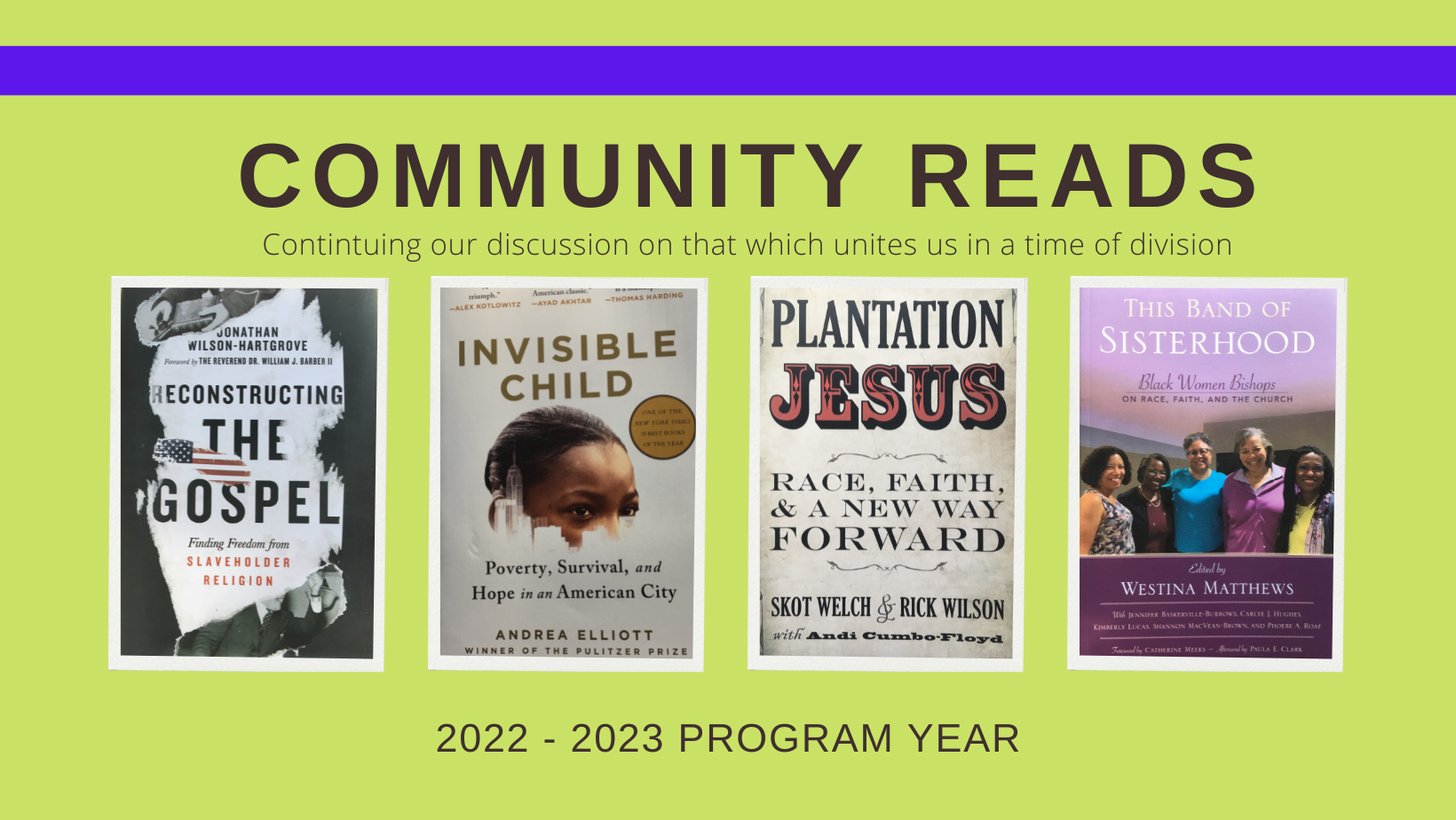
Community, that which unites us, our common union one with another. Fellowship has been defined as fellows in the same ship. One thing that we lack in our understanding of ourselves and our churches is the ability to see our common union. Our understanding of church has been impacted due to our need to stay socially distanced. Perhaps the walls that separate us have been exposed for the farce that they are since we can now log on and be church -- or can we?
As a result of prayer and in consideration of our social realities, we will begin a series of book studies with St. Peter's in the Richmond area. The intent of these gathering is to examine where we as church have been, where we are, and where we hope to go into the future.
As a prelim to our study please give yourself a few minutes to listen to Nigerian author Chimamanda Ngozi Adiche's TED Talk on the danger of having only one story about a people, a culture, a nation, a country. Her novels, Americanah and Purple Hibiscus are good reads.
And maybe pray this prayer:
Lord forgive us - forgive our failings born of the stories we've been told and embraced. Help us as we grapple with our lack of understanding, our new hearing and honoring each other's stories. Help us in our going forward to hear and honor our shared and disparate experiences knowing that it is only in honest and safe spaces that we can begin to really hear one another and listen without attempts to fix or correct. We are in this to grow by listening and honoring. We are in this to honor each other.
Tuesdays evenings from 7-8pm via Zoom
Passcode: 562406
Please consider joining us as we read through the Program Year of 2022 through 2023 season:
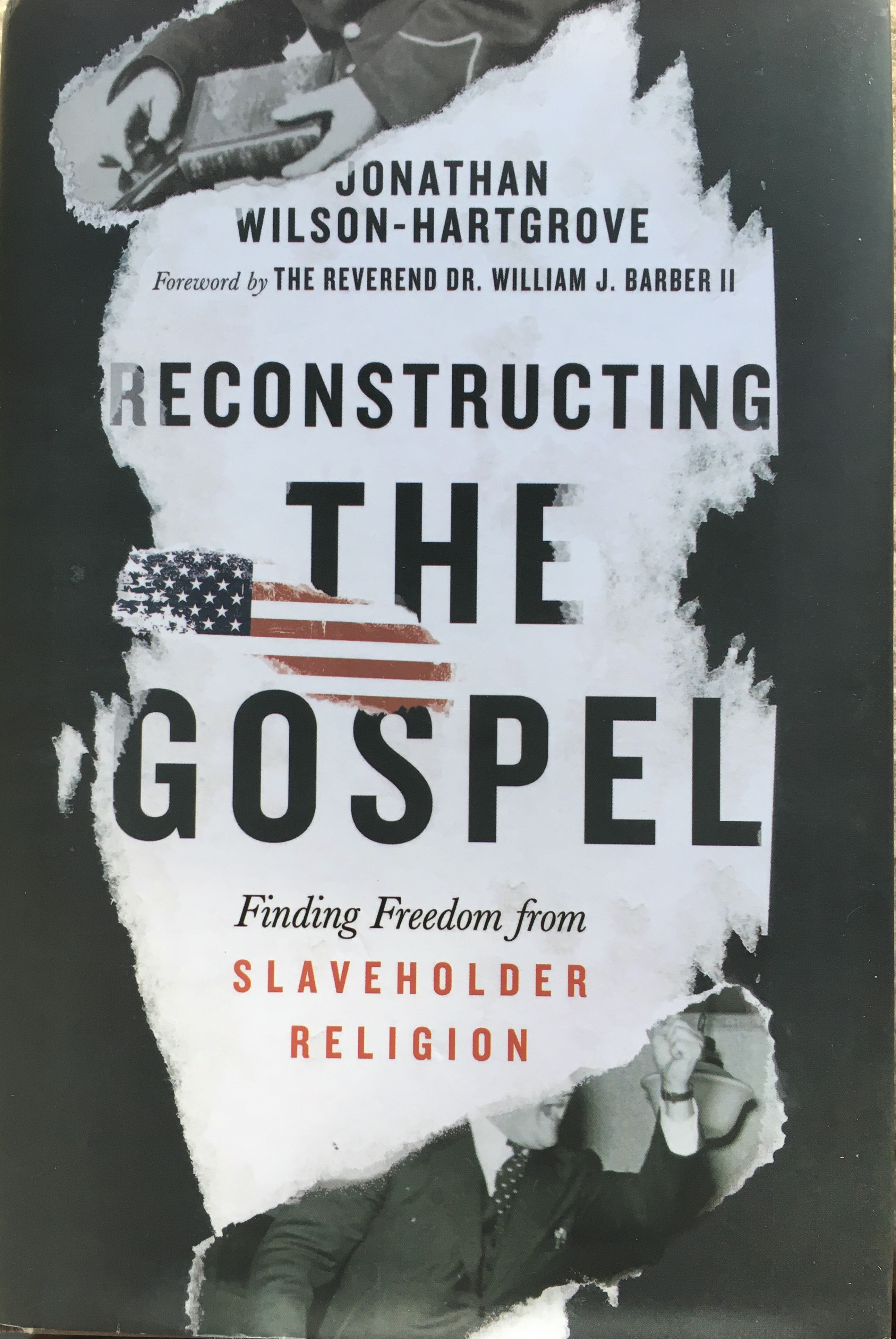
Book One: Reconstructing the Gospel: Finding Freedom from Slaveholder Religion, by Jonathan Wilson-Hartgrove
Tuesdays, September 27, October 4 & 11, 7-8pm via Zoom
- For Sept. 27 please read (or skim) chapters 1-4 and watch this TED Talk, Chimamanda Adichie on The Danger of a Single Story
Think about the following:
- Can you think of a historical "fact" that you later learned was a myth created to preserve power?
- "Christians support and participate in atrocious evil," Jonathan writes, "not because we choose to do wrong but because we think we're doing the right thing - the righteous thing even." What can we do to confront our contradictions?
- In the beginning of Chapter 4, Mario shares Tupac's music with Jonathan. Have you ever had a similar experience that opened your eyes to the humanity of others and exposed your racial blindness?
- For October 4 please read (or skim) chapters 5-7 and listen to this podcast from The Cosmic We: Exploring the Power of Story with Cole Arthur Riley
Think about the following:
- Can the Church be holy and broken at the same time? If so, how is that tension visible in faith communities you have known/know?
- In the 1960's (and times since then) people of faith disagreed about how to change the world. How should the church discern when to work within the system for change and when to dismantle the system? How can we be part of opening eyes to needed systemic change?
- Where is the "holy ground" in our/your community where you can celebrate faith rooted in freedom? Is there this ground? If not how do we cultivate it?
- For October 11 please read (or skim) chapters 8-10 and watch this video: Meet the Real Ann Atwater, and read Why I'm Leaving America by Deneen Brown
Think about the following:
- Accepting leadership from those most affected by an issue requires stepping aside to learn and see from another's perspective. When have you/your church done this and learned what was needed vs. what you thought was needed?
- How has the Holy Spirit moved in your church to interrupt familiar and long-held-patterns?
- What are does it mean for a church to be a monument vs. a movement?
- Why do you think our churches are often reluctant to address political issues?
- Racial bias, racial blindness, and racial habits all have to change. What are we willing to risk?
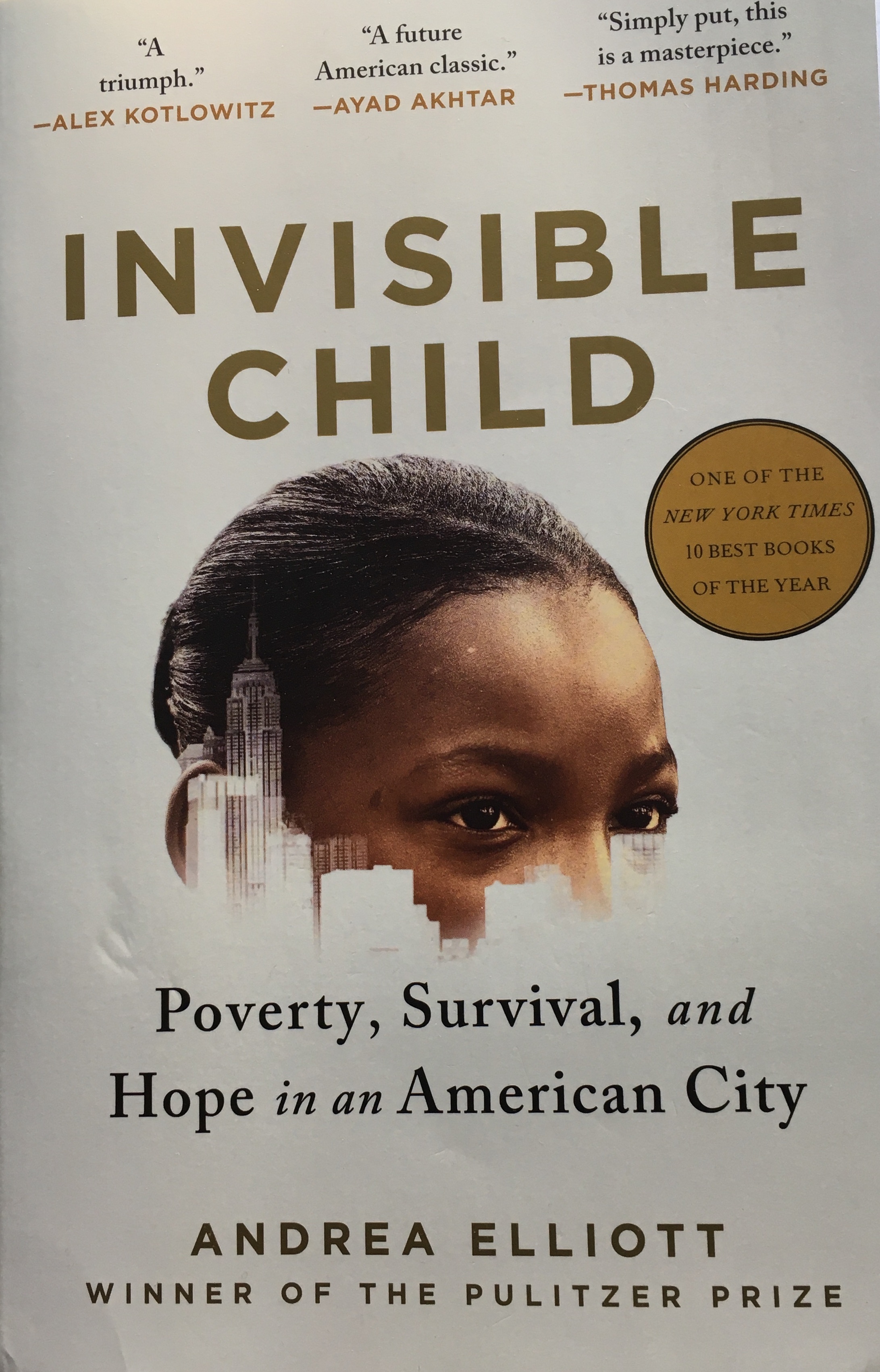
Book Two: Invisible Child: Poverty, Survival & Hope in an American City by Andrea Elliott, Pulitzer Prize winner.
In Invisible Child, Pulitzer Prize winner Andrea Elliott follows eight dramatic years in the life of Dasani, a girl whose imagination is as soaring as the skyscrapers near her Brooklyn shelter. In this sweeping narrative, Elliott weaves the story of Dasani’s childhood with the history of her ancestors, tracing their passage from slavery to the Great Migration north. As Dasani comes of age, New York City’s homeless crisis has exploded, deepening the chasm between rich and poor. She must guide her siblings through a world riddled by hunger, violence, racism, drug addiction, and the threat of foster care. Out on the street, Dasani becomes a fierce fighter “to protect those who I love.” When she finally escapes city life to enroll in a boarding school, she faces an impossible question: What if leaving poverty means abandoning your family, and yourself?
A work of luminous and riveting prose, Elliott’s Invisible Child reads like a page-turning novel. It is an astonishing story about the power of resilience, the importance of family and the cost of inequality—told through the crucible of one remarkable girl.
Tuesdays January 24, 31 & February 7, 7-8pm via Zoom
Listen to this October 2013 Brian Lehrer interview with Andrea Elliott: Profiling a "Girl in the Shadows" (45 minutes)
Read In Brooklyn, Photographing an Invisible Child by Ruth Freeman, December 2013
Link to the original NY Times series of articles December 2013 (Five parts)
For January 24 think about:
- Dasani’s age 11 “norms” and her role in her family, her family history and its role in her life
- The role of the school
- The meaning of home
- How does Dasani's family story - family history - inform her story?
- What happens when trying to escape poverty means separating from your family at 13?
- How do Dasani's choices conflict with your idea or image of a "good outcome"? Why?
- What can we learn from one child about what it means to live an insecure life while holding to a true sense of family, love and responsibility?
- What can we do/advocate for to support families rather than separate them - when is separation needed and who decides?
And if you have time: I think both are challenging reads
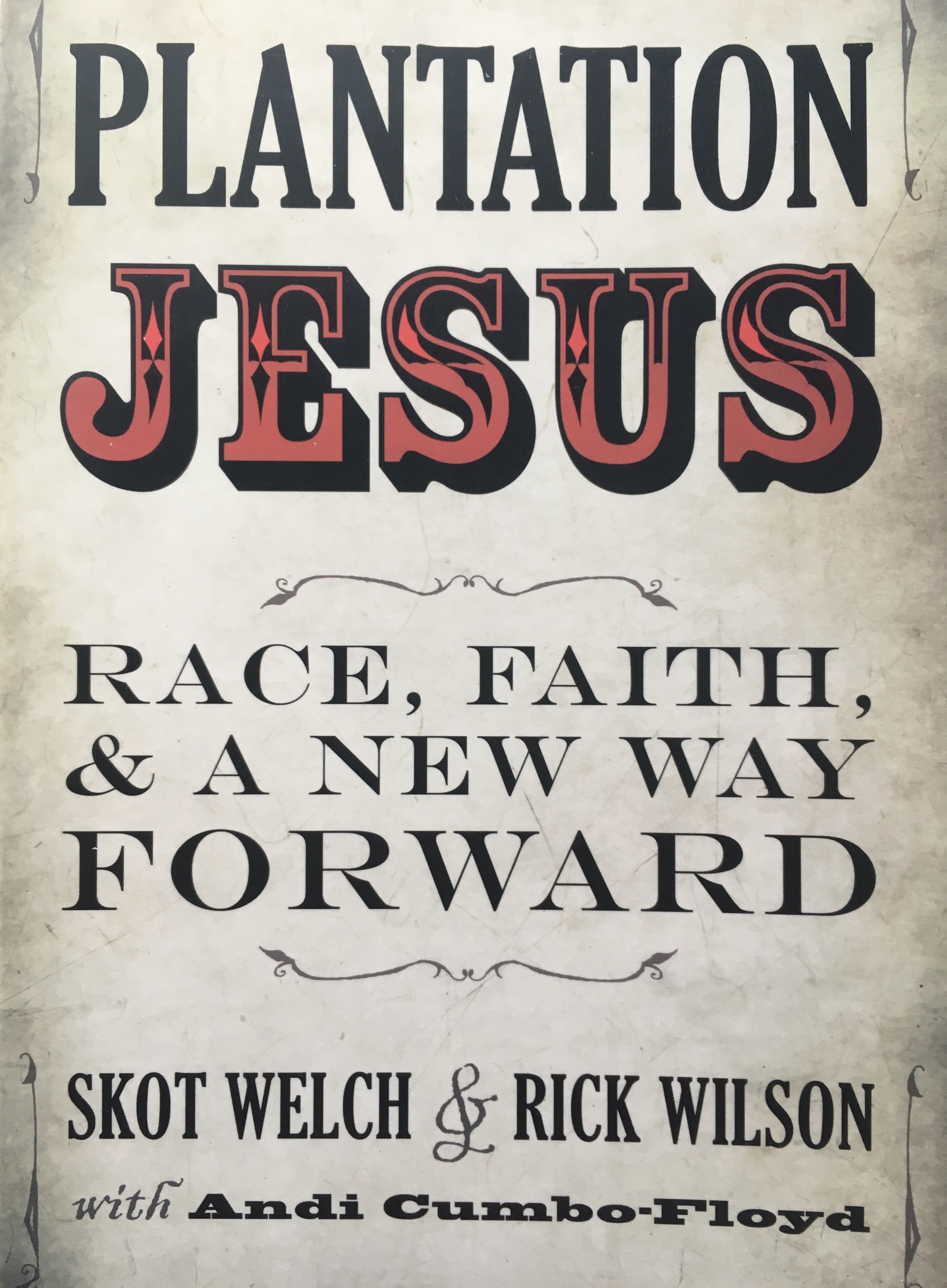
Book Three: Plantation Jesus: Race, Faith & New Way Foreward, by SKot Welch and Rick Wilson
Not long ago, most White American Christians believed that Jesus blessed slavery. God wasn't bothered by Jim Crow. Baby Jesus had white skin. Meet Plantation Jesus: a god who is comfortable with bigotry and an idol that distorts the message of the real Savior.
That false image of God is dead, right? Wrong, argue the authors of Plantation Jesus, an authoritative new book on one of the most urgent issues of our day.
Through their shared passion for Jesus Christ and with an unblinking look at history, church, and pop culture, authors Skot Welch and Rick Wilson detail the manifold ways that racism damages the church's witness. Together Welch and Wilson take on common responses by White Christians to racial injustice, such as I never owned a slave; I don't see color, only people; and we just need to get over it and move on. Together they call out the church's denials and dodges and evasions of race, and they invite listeners to encounter the Christ of the disenfranchised.
With practical resources and Spirit-filled stories, Plantation Jesus nudges listeners to learn the history, acknowledge the injury, and face the truth. Only then can the church lead the way toward true reconciliation. Only then can the legacy of Plantation Jesus be replaced with the true way of Jesus Christ.
TBD
Book Four: This Band of Sisterhood: Black Women Bishops On Race, Faith and the Church, Edited by Westina Matthews. 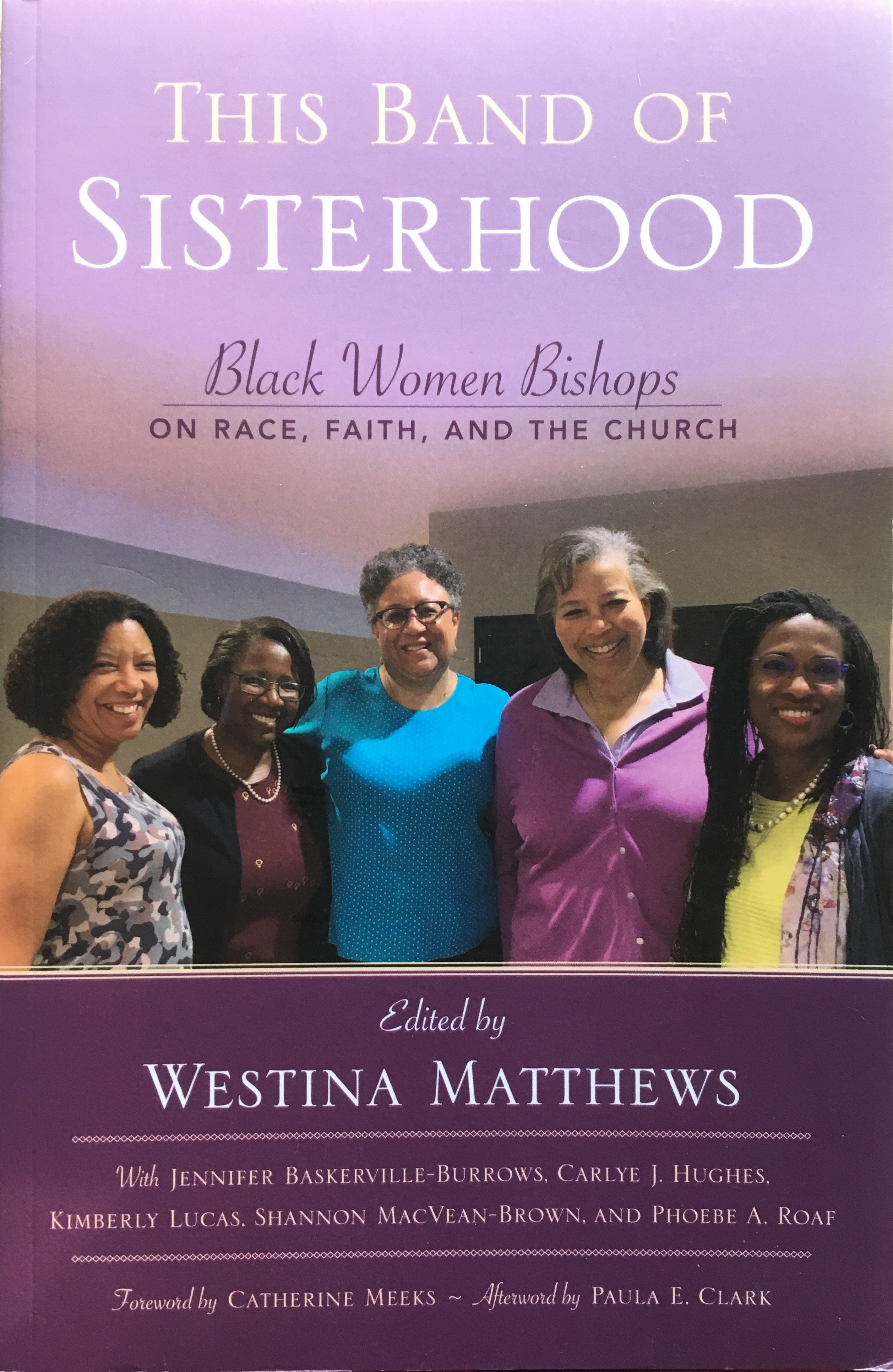
Get to know the first five Black women to be elected diocesan bishops within the Episcopal Church.
During this moment, with the #metoo movement, Black Lives Matter, and the increased feelings of division in our country, Black women clergy in the Episcopal Church have voiced a need to come together, believing that their experiences and concerns may be very different than those of other clergy. That need is answered here in This Band of Sisterhood.
The five Black women bishops featured in this book can provide a compass for how to journey along these new paths. Jennifer Baskerville-Burrows, Carlye J. Hughes, Kimberly Lucas, Shannon MacVean-Brown, and Phoebe A. Roaf offer honest, vulnerable wisdom from their own lives that speaks to this time in American life.
Both women and men will find this book invaluable in discerning how God might be calling them to use their own leadership skills.
TBD
Community Reads 2021 - 2022 led by Rev. Dorothy White included these books:
The Church Cracked Open: Disruption, Decline, and New Hope for Beloved Community, by Canon Stephanie Spellers
Healing Haunted Histories: A Settler Discipleship of Decolonization by Elaine Chin, Ched Myers, et al
Post-Traumatic Slave Syndrome: America's Legacy of Enduring Injury and Healing, by Joy DeGruy
Better Not Bitter: Living on Purpose in the Pursuit of Racial Justice, by Yusef Salaam
